Chinese Internet giants: an interview with AliExpress
The first part of the article with a photo report from the headquarters of the Alibaba Group was read at least fifty thousand times and was sold online at an incredible speed. The time has come for the second part, in which we will talk about the history of the creation of the company and its current state with the Director of Development for the Russian direction of AliExpress, Denis Makkaveev.

Before we go directly to AliExpress itself, could you tell us about the history of the Alibaba Group itself? The question is trivial, however, in Russian there is little information about this. How it all began?
')
The Alibaba group was established in 1999 when Jack Ma and a former 17 English teachers from the city of Hangzhou and 17 other founders launched www.alibaba.com to help small and medium-sized businesses grow through the Internet. It all started as a marketplace for small Chinese manufacturers. Since then, Alibaba.com has developed into a global online marketplace for companies around the world.
From the very beginning, the group developed not only the B2B-direction ( www.alibaba.com and www.1688.com sites ), but also consumer electronic commerce (C2C-shop Taobao, B2C-platforms Tmall and AliExpress), the Internet payment system Alipay, Aliyun cloud technologies, mobile operating systems and more. Simply put, the company and its partners form a whole “family of Internet businesses” that make sales and purchases easier.
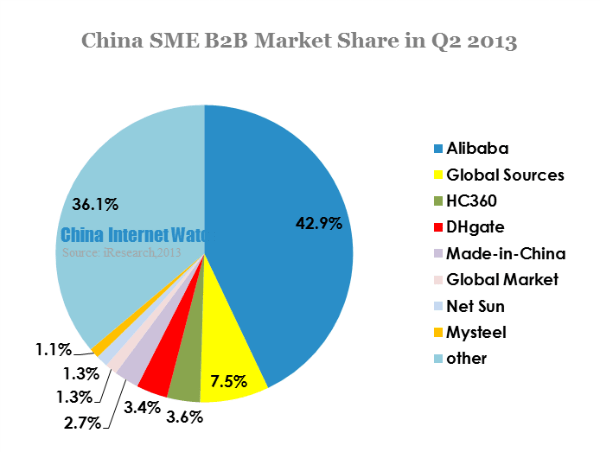
How many people work in Alibaba.com and AliExpress?
It's hard to say exactly, since Alibaba.com and AliExpress are subsidiaries of the Alibaba Group and use the resources of the entire company. If we talk in general about the Alibaba Group and its "daughters", now we have about 24 thousand employees in more than 70 offices around the world: in China, India, the UK and the USA.
And when exactly was AliExpress launched and how does it differ from the rest of your sites?
AliExpress was officially launched in April 2010 as an additional tool for small businesses. While Alibaba.com is more focused on large deals, including prototyping and custom manufacturing, AliExpress was conceived as a wholesale platform for the needs of small purchasers, who need fast delivery of a small consignment of goods.
Alibaba.com can also be viewed as an information platform, where buyers familiarize themselves with manufacturers and their products, and other business processes and correspondence can take place anywhere, including offline.
On AliExpress, we noticed a growing demand for goods placed by end customers. Therefore, the focus of the site has recently shifted towards small orders (up to one piece), although we also do not forget about the needs of purchasers from medium-sized enterprises.
How is your security? After all, such platforms are often a zone of activity of fraudsters, not to mention simply unscrupulous sellers, or even buyers.
We provide a large list of services to ensure the reliability of transactions. First, it is a whole set of safe and convenient payment methods. Secondly, the "freezing" of payment to the seller, until the client confirms that he is satisfied with the purchase. Thirdly, a large selection of ways to deliver goods with the ability to track it. Not to mention the seller rating system, which is based on customer feedback, and a policy of full or partial refund if there is something wrong with the product.
I recently spoke with customers who were very interested in the e-commerce market in China, they asked me about the problem of counterfeit. How are you doing with this? Do you fight fakes and replicas?
Of course, we have a service that monitors counterfeit and prevents its spread. But with so many goods like ours, everything is difficult to track. It is also important to separate fakes and replicas. Replicas are products that look like branded items, are made with high quality and at affordable prices, but this is not a counterfeit yet. It is no secret that some of our customers are interested in just such products.
OK, let's say I am “Russian Ivan”, I went to your website to buy a phone from “Chinese Lee”. After some time I received a parcel, and in it - a pitiful semblance of what I ordered. How to be?
First, do not forget that the seller has not yet received the money, so the seller himself is most interested in getting the buyer to get the goods faster, to like the purchase and at least match the description in the store.
Secondly, if we could not find a common language with the supplier, our arbitration service interferes with the situation, which compares photos of the goods in the store and what came to the buyer. If the truth is on the side of the buyer (example: I bought a leather bag, but I got a rag), then the money is not paid to the seller. Further some time is given to solve the situation. The seller can either send the normal goods (leather bag) for free, or agree on the return of the goods at his expense. The options are different.
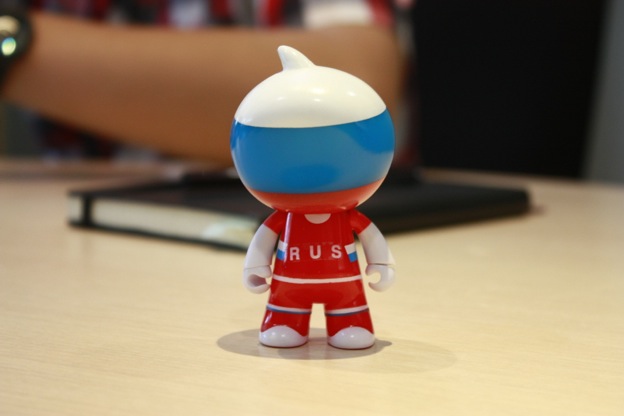
And in what language is communication with customer support and the seller?
Now the communication is in English, partly with the help of an online translator. But the essence is not even in the language of communication, sometimes it is enough just to send photos of the goods received, so that we understand that something is wrong. After all, our support service handles tens of thousands of cases a day, and has accumulated vast experience in conflict resolution. And if a broken phone was sent to you, then it is enough to send a photo where it is plugged into a working outlet and does not work from the network. The rest is a matter of technology.
Moreover, now the suppliers themselves who work for Russia already have their Russian support service. After all, the seller is easier and faster to understand the conflict and negotiate with the buyer independently than through our service.
Our readers really like the numbers, could you share real data that would clearly show what AliExpress is now? The number of users, products and categories, and so on.
According to statistics at the end of March 2013, there are 54 million items sold on AliExpress in 26 main categories, from clothing and accessories to electronics, jewelry and auto parts. The site serves more than 7.7 million registered users from 200 countries and regions.
Are there any data on Russia?
I can say that Russia in the first quarter of 2013 became the main market in terms of the number of transactions (43%) and volume (26%). She is confidently ahead of the United States and Brazil, which are second and third. Russia is now for us the main goal, and we see a steady increase in sales in this country.
As for users from Russia, the year-on-year (year-on-year) growth was 465% and now we have more than 700 thousand registrations, which is 9% of the entire user base of AliExpress.
What products do Russians buy? What is the average check?
The average check in Russia is $ 20, in America the average check is much higher. In general, our compatriots are interested in clothes, accessories and bags, shoes, inexpensive electronics.
How do you attract users on AliExpress in general and in Russia in particular? What are the ways to promote using?
Recent years, the growth of traffic and the user base of AliExpress was mostly natural, with no active actions to promote from our side. Perhaps partly because of the connection with Alibaba.com, which is in fact the leading global B2B platform, and users themselves will learn about AliExpress when they need consumer goods at competitive prices.
The same can be said about Russia, where AliExpress is not actively moving forward, and the number of users is constantly growing. This once again confirms the need for AliExpress services in Russia. By the way, according to Alexa.com, we are already in 31st place in the ranking of all Russian sites in attendance, which is not bad for such a short period and in the absence of active promotion.
However, now we are trying to increase brand awareness among our target audience, by localizing the site, improving the quality of information provided on the site and participating in social media. So in Russia we have an official Vkontakte page, where we publish news about sales, new platform features, and also communicate with users. We get a lot of feedback through VK, and they are very valuable for the development of our project.
In general, the development of an international Internet product is not an easy task, and localization is an important but not the only step. How do you develop your international versions? What is being done apart from the translation?
In 2010, AliExpress was launched only in English, and even then people from two hundred countries started using it. In 2013, we launched landing pages in other languages, including Russian, Spanish, Portuguese, German, and Arabic, so that people who do not speak English can use the site.
Speaking of markets that show great interest in AliExpress - for example, Russia, we are also working to meet the specific needs of local users. For example, search for goods in Russian, daily recommendations and sales of goods that are most suitable for the Russian market. We also entered into partnerships with QIWI and WebMoney payment systems to make online shopping on AliExpress even easier. Further more!
But, in addition to language and other features, in Russia there is still the problem of logistics. And if in China everything is fine with logistics, and in open sources they write that 60% of all the packages of China are somehow related to Alibaba, then in the Russian Federation there is the “Russian Post”, which we have scolded. It suffices only to recall the recent “postal collapse” when some crazy number of packages were delayed (by the way, mainly from China). How do you work with them and at the same time ensure reliable delivery to Russia?
In fact, more recently, in China, there were problems with logistics. China Post did not differ in speed, and the Big Five of Chinese logisticians simply did not exist. Thanks to the growth of e-commerce in China, the active development of logistics began.
Exactly the same situation now in Russia. If Russian logisticians pay attention to the volume and growth of electronic commerce, then I believe that we can solve not only the problem of logistics in the country, but also the problem of employment. I must say that there is already progress in this direction.
As for the “Post of Russia”, we actively cooperate with them. For example, now the parcels go not only through Moscow (as it was before), but also through Novosibirsk and St. Petersburg.
Moreover, some of our suppliers already have warehouses in Russia and ship goods from there, making delivery even faster and more reliable.
Can you share further plans for AliExpress in Russia? Do you plan to open an office in Russia in connection with the above?
Traditionally, the company does not disclose details of future plans, but I can say for sure that Russia is one of the most important markets for AliExpress, and we will continue to make efforts to improve service in our country.
We are not planning to open an office in Russia, since we are an Internet company, and the location of employees does not play a big role - so at the moment there are no such plans, although you can never guess. Some suppliers placing their products on AliExpress may be located in Russia and send goods to other countries of the world. We will be glad not only to buyers, but also to sellers from Russia.
And finally, the question about the IPO. I know that we are read by various people, including top managers from Russian Internet companies and people closely following the stock market. When will the group go IPO? Rumor has it that almost next month.
Officially, of course, no one will say anything. There is a lot of speculation on this topic. Now the company is very serious about what we do and say, because our every step affects the industry as a whole.
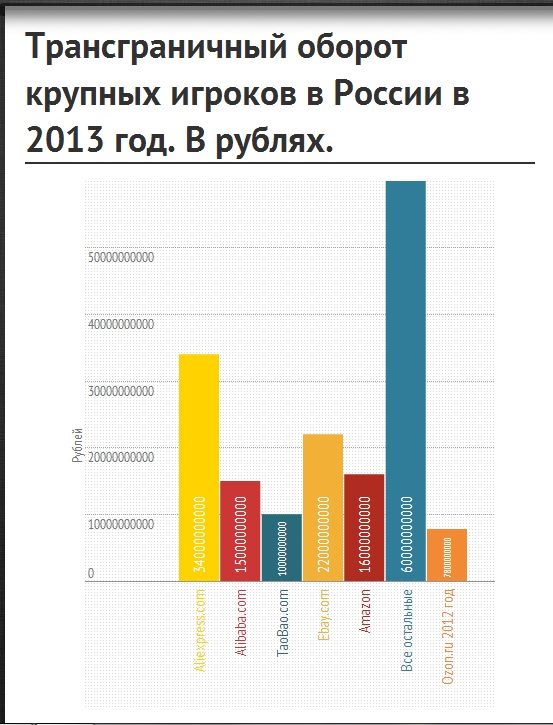
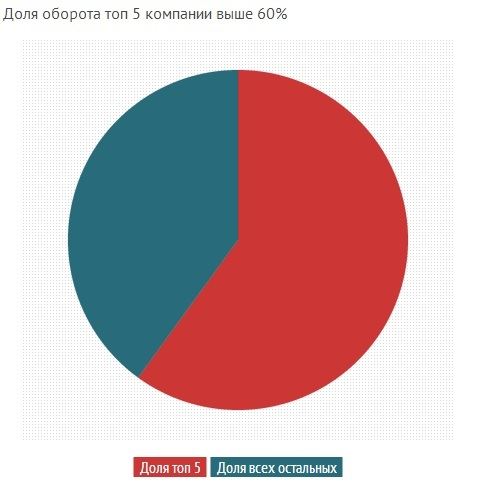
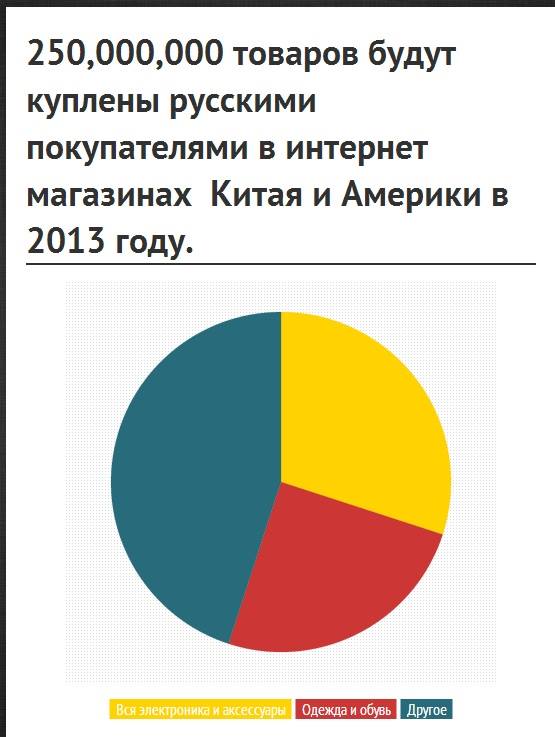
Feedback from AliExpress
Since I had a lot of emails and personal messages related to problems on AliExpress, I should clarify: guys, I have nothing to do with AliExpress / Alibaba. Please contact the support service on the site itself or in their official vk-group . Thank you for your understanding and for your advantages;)

Before we go directly to AliExpress itself, could you tell us about the history of the Alibaba Group itself? The question is trivial, however, in Russian there is little information about this. How it all began?
')
The Alibaba group was established in 1999 when Jack Ma and a former 17 English teachers from the city of Hangzhou and 17 other founders launched www.alibaba.com to help small and medium-sized businesses grow through the Internet. It all started as a marketplace for small Chinese manufacturers. Since then, Alibaba.com has developed into a global online marketplace for companies around the world.
From the very beginning, the group developed not only the B2B-direction ( www.alibaba.com and www.1688.com sites ), but also consumer electronic commerce (C2C-shop Taobao, B2C-platforms Tmall and AliExpress), the Internet payment system Alipay, Aliyun cloud technologies, mobile operating systems and more. Simply put, the company and its partners form a whole “family of Internet businesses” that make sales and purchases easier.

How many people work in Alibaba.com and AliExpress?
It's hard to say exactly, since Alibaba.com and AliExpress are subsidiaries of the Alibaba Group and use the resources of the entire company. If we talk in general about the Alibaba Group and its "daughters", now we have about 24 thousand employees in more than 70 offices around the world: in China, India, the UK and the USA.
And when exactly was AliExpress launched and how does it differ from the rest of your sites?
AliExpress was officially launched in April 2010 as an additional tool for small businesses. While Alibaba.com is more focused on large deals, including prototyping and custom manufacturing, AliExpress was conceived as a wholesale platform for the needs of small purchasers, who need fast delivery of a small consignment of goods.
Alibaba.com can also be viewed as an information platform, where buyers familiarize themselves with manufacturers and their products, and other business processes and correspondence can take place anywhere, including offline.
On AliExpress, we noticed a growing demand for goods placed by end customers. Therefore, the focus of the site has recently shifted towards small orders (up to one piece), although we also do not forget about the needs of purchasers from medium-sized enterprises.
How is your security? After all, such platforms are often a zone of activity of fraudsters, not to mention simply unscrupulous sellers, or even buyers.
We provide a large list of services to ensure the reliability of transactions. First, it is a whole set of safe and convenient payment methods. Secondly, the "freezing" of payment to the seller, until the client confirms that he is satisfied with the purchase. Thirdly, a large selection of ways to deliver goods with the ability to track it. Not to mention the seller rating system, which is based on customer feedback, and a policy of full or partial refund if there is something wrong with the product.
I recently spoke with customers who were very interested in the e-commerce market in China, they asked me about the problem of counterfeit. How are you doing with this? Do you fight fakes and replicas?
Of course, we have a service that monitors counterfeit and prevents its spread. But with so many goods like ours, everything is difficult to track. It is also important to separate fakes and replicas. Replicas are products that look like branded items, are made with high quality and at affordable prices, but this is not a counterfeit yet. It is no secret that some of our customers are interested in just such products.
OK, let's say I am “Russian Ivan”, I went to your website to buy a phone from “Chinese Lee”. After some time I received a parcel, and in it - a pitiful semblance of what I ordered. How to be?
First, do not forget that the seller has not yet received the money, so the seller himself is most interested in getting the buyer to get the goods faster, to like the purchase and at least match the description in the store.
Secondly, if we could not find a common language with the supplier, our arbitration service interferes with the situation, which compares photos of the goods in the store and what came to the buyer. If the truth is on the side of the buyer (example: I bought a leather bag, but I got a rag), then the money is not paid to the seller. Further some time is given to solve the situation. The seller can either send the normal goods (leather bag) for free, or agree on the return of the goods at his expense. The options are different.

And in what language is communication with customer support and the seller?
Now the communication is in English, partly with the help of an online translator. But the essence is not even in the language of communication, sometimes it is enough just to send photos of the goods received, so that we understand that something is wrong. After all, our support service handles tens of thousands of cases a day, and has accumulated vast experience in conflict resolution. And if a broken phone was sent to you, then it is enough to send a photo where it is plugged into a working outlet and does not work from the network. The rest is a matter of technology.
Moreover, now the suppliers themselves who work for Russia already have their Russian support service. After all, the seller is easier and faster to understand the conflict and negotiate with the buyer independently than through our service.
Our readers really like the numbers, could you share real data that would clearly show what AliExpress is now? The number of users, products and categories, and so on.
According to statistics at the end of March 2013, there are 54 million items sold on AliExpress in 26 main categories, from clothing and accessories to electronics, jewelry and auto parts. The site serves more than 7.7 million registered users from 200 countries and regions.
Are there any data on Russia?
I can say that Russia in the first quarter of 2013 became the main market in terms of the number of transactions (43%) and volume (26%). She is confidently ahead of the United States and Brazil, which are second and third. Russia is now for us the main goal, and we see a steady increase in sales in this country.
As for users from Russia, the year-on-year (year-on-year) growth was 465% and now we have more than 700 thousand registrations, which is 9% of the entire user base of AliExpress.
What products do Russians buy? What is the average check?
The average check in Russia is $ 20, in America the average check is much higher. In general, our compatriots are interested in clothes, accessories and bags, shoes, inexpensive electronics.
How do you attract users on AliExpress in general and in Russia in particular? What are the ways to promote using?
Recent years, the growth of traffic and the user base of AliExpress was mostly natural, with no active actions to promote from our side. Perhaps partly because of the connection with Alibaba.com, which is in fact the leading global B2B platform, and users themselves will learn about AliExpress when they need consumer goods at competitive prices.
The same can be said about Russia, where AliExpress is not actively moving forward, and the number of users is constantly growing. This once again confirms the need for AliExpress services in Russia. By the way, according to Alexa.com, we are already in 31st place in the ranking of all Russian sites in attendance, which is not bad for such a short period and in the absence of active promotion.
However, now we are trying to increase brand awareness among our target audience, by localizing the site, improving the quality of information provided on the site and participating in social media. So in Russia we have an official Vkontakte page, where we publish news about sales, new platform features, and also communicate with users. We get a lot of feedback through VK, and they are very valuable for the development of our project.
In general, the development of an international Internet product is not an easy task, and localization is an important but not the only step. How do you develop your international versions? What is being done apart from the translation?
In 2010, AliExpress was launched only in English, and even then people from two hundred countries started using it. In 2013, we launched landing pages in other languages, including Russian, Spanish, Portuguese, German, and Arabic, so that people who do not speak English can use the site.
Speaking of markets that show great interest in AliExpress - for example, Russia, we are also working to meet the specific needs of local users. For example, search for goods in Russian, daily recommendations and sales of goods that are most suitable for the Russian market. We also entered into partnerships with QIWI and WebMoney payment systems to make online shopping on AliExpress even easier. Further more!
But, in addition to language and other features, in Russia there is still the problem of logistics. And if in China everything is fine with logistics, and in open sources they write that 60% of all the packages of China are somehow related to Alibaba, then in the Russian Federation there is the “Russian Post”, which we have scolded. It suffices only to recall the recent “postal collapse” when some crazy number of packages were delayed (by the way, mainly from China). How do you work with them and at the same time ensure reliable delivery to Russia?
In fact, more recently, in China, there were problems with logistics. China Post did not differ in speed, and the Big Five of Chinese logisticians simply did not exist. Thanks to the growth of e-commerce in China, the active development of logistics began.
Exactly the same situation now in Russia. If Russian logisticians pay attention to the volume and growth of electronic commerce, then I believe that we can solve not only the problem of logistics in the country, but also the problem of employment. I must say that there is already progress in this direction.
As for the “Post of Russia”, we actively cooperate with them. For example, now the parcels go not only through Moscow (as it was before), but also through Novosibirsk and St. Petersburg.
Moreover, some of our suppliers already have warehouses in Russia and ship goods from there, making delivery even faster and more reliable.
Can you share further plans for AliExpress in Russia? Do you plan to open an office in Russia in connection with the above?
Traditionally, the company does not disclose details of future plans, but I can say for sure that Russia is one of the most important markets for AliExpress, and we will continue to make efforts to improve service in our country.
We are not planning to open an office in Russia, since we are an Internet company, and the location of employees does not play a big role - so at the moment there are no such plans, although you can never guess. Some suppliers placing their products on AliExpress may be located in Russia and send goods to other countries of the world. We will be glad not only to buyers, but also to sellers from Russia.
And finally, the question about the IPO. I know that we are read by various people, including top managers from Russian Internet companies and people closely following the stock market. When will the group go IPO? Rumor has it that almost next month.
Officially, of course, no one will say anything. There is a lot of speculation on this topic. Now the company is very serious about what we do and say, because our every step affects the industry as a whole.
Graphics from Oscar Hartmann



Feedback from AliExpress
Since I had a lot of emails and personal messages related to problems on AliExpress, I should clarify: guys, I have nothing to do with AliExpress / Alibaba. Please contact the support service on the site itself or in their official vk-group . Thank you for your understanding and for your advantages;)
Source: https://habr.com/ru/post/194940/
All Articles